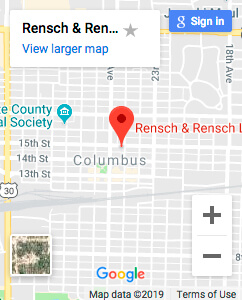Saudi Women Allowed to Drive: Highlights Bias That May Still Exist Against Women in the U.S.
OMAHA, Nebraska. The right to drive is something many Americans take for granted. Having a car affords us the freedom to get around. Many of us can remember the first time we held our driver’s license or the first time we drove alone.
The New York Times reports that for 40 years, in Saudi Arabia, women have not been permitted to drive. Government officials claimed that women’s brains were smaller, that if they drove, they ran the risk of giving birth to a child with birth defects. Now, for the first time in 40 years, women will have the right to drive. The bias against women drivers in Saudi Arabia is extreme, but there remain echoes of these biases against women drivers to this day.
According to Women’s Studies International Forum, some of the biases involve folkloric thinking about “women drivers.” Many of these ideas were created in the early days of driving to keep women off the road and “in their place.”
In Saudi Arabia, men are struggling to come to grips with the idea of women behind the wheel. Cultural stereotypes about women’s brains and education that tells men that they cannot control their desires pit old mentalities against new regulations.
In the U.S., in the. early days of women drivers, men may have struggled with a feeling of threat from women’s newfound independence. A reaction to this would have been biased and stereotyped beliefs that women were inferior drivers.
In some cases, these biases may have succeeded in keeping women off the road in America—for a little while, at least. Will they succeed in Saudi Arabia?
Insurance companies study the risks that drivers pose. Insurance research has found over time that the bias against women drivers is completely unfounded. According to the Insurance Institute for Highway Safety, statistically, men are more dangerous behind the wheel and more likely to get into crashes.
Women is Saudi Arabia face other barriers to driving. The New York Times reports that some women simply cannot afford to purchase their own car. Families may still control women’s finances and if the family or husband is opposed to a woman driving, the woman may not be able to get behind the wheel. The cost of driving school in Saudi Arabia is high and individuals need lessons to get their license.
Women drivers can face unique challenges. If police officers harbor biases against women drivers, for example, women could face getting blamed for accidents even if they were not at fault. Negligence can play a big role in who has to pay for a car accident after it happens. If you have been in an accident, and you believe that bias was at play, you may have certain rights under the law. Rensch & Rensch Law are personal injury attorneys in Omaha, Nebraska who help victims seek damages after a crash. Our firm can review the factors leading to your accident and can help you fight to seek compensation for your losses. Visit us at https://www.renschandrensch.com/ to learn more about your options or rights under the law.
Rensch & Rensch Law
7602 Pacific Street,
Suite 102
Omaha, NE 68114





